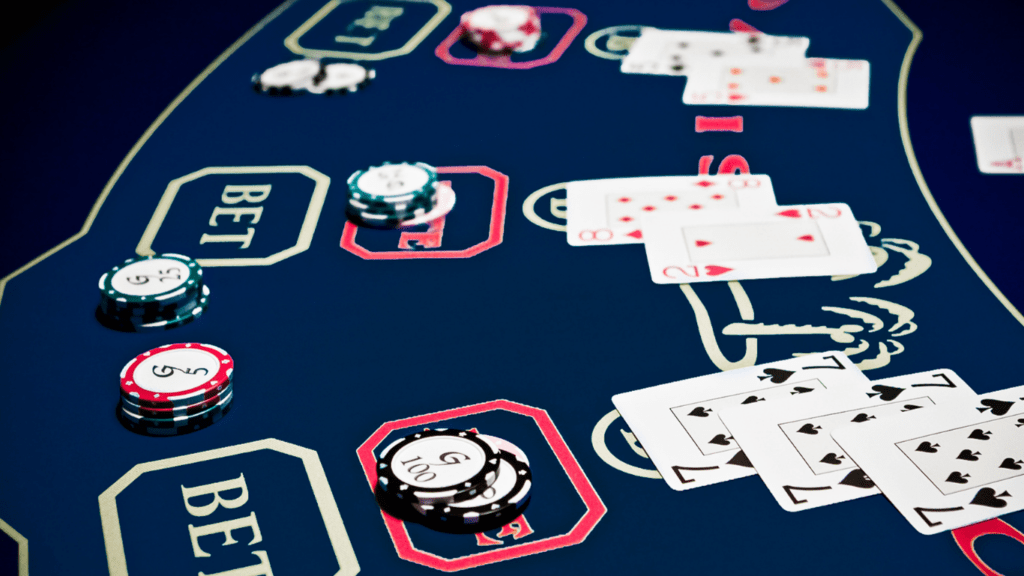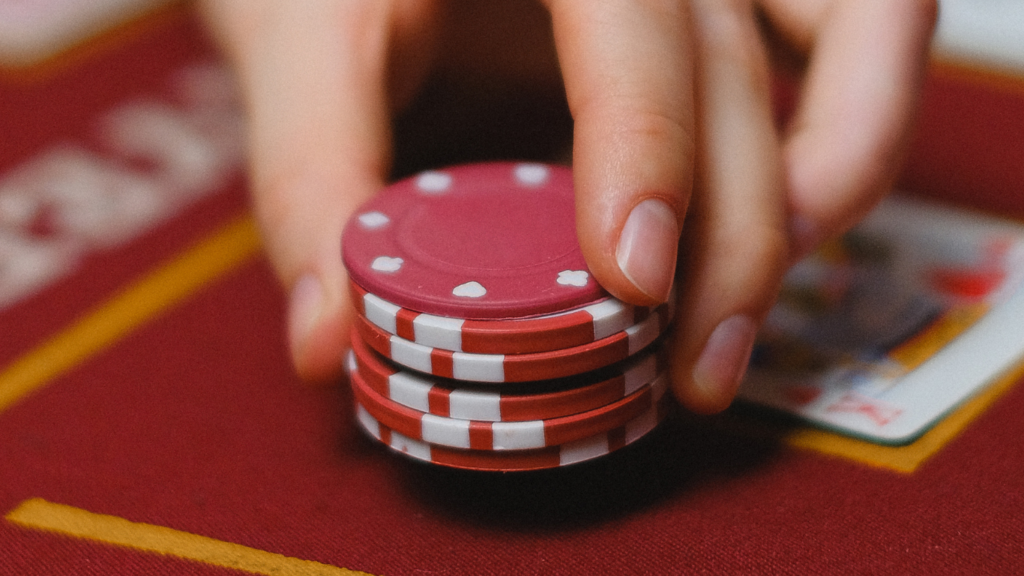Understanding Blackjack
Blackjack’s a card game where players aim to get a hand value close to 21 without exceeding it. Each card has a specific value: numbered cards are worth their face value, face cards (Kings, Queens, Jacks) are worth 10, and Aces can be worth 1 or 11, depending on which helps the hand more.
Players start by placing bets. They receive two cards and decide how to proceed: hit (get another card), stand (keep current hand), double down (double the bet and receive one more card), or split (if the two cards have the same value, split into two hands). Players compete against the dealer, who must follow specific rules, such as standing on 17 or higher.
A player’s main goal is to beat the dealer’s hand without going over 21. A “blackjack” is the best hand, achieved with an Ace and a 10-value card, totaling 21. Blackjack offers a payout of 3 to 2, while a win pays 1 to 1. If both player and dealer have blackjack, the result is a push (tie).
The game uses one or more standard 52-card decks. Casinos use shuffling machines or manual shuffling to ensure randomness. The house edge in blackjack typically ranges from 0.5% to 2%, depending on the game’s rule variations and the player’s skill level.
In blackjack, a balanced combination of luck (the cards dealt) and skill (decisions made) affects outcomes. Understanding the game mechanics and learning basic strategy improves a player’s chances of succeeding.
The Element of Luck
In blackjack, luck plays a significant role due to the inherent unpredictability of the game. Despite skilled decision-making, the random nature of card distribution can still lead to varying outcomes.
Randomness and Probability
Card dealing in blackjack relies on randomness. Each new hand reshuffles probabilities, making card outcomes unpredictable. For instance, getting a blackjack with an Ace and a 10-value card offers a favorable start, but it’s purely luck-based.
Advanced shuffling techniques and random number generators in online blackjack ensure genuine randomness. Effective card counting depends on knowing the probability of specific cards appearing.
Yet, even with this knowledge, luck influences the cards drawn each turn. Variability means sometimes a statistically unlikely card appears, swaying the game’s result.
The Role of the Dealer
- The dealer’s role adds another layer to the element of luck.
- Dealers follow strict rules, such as hitting until they reach at least 17. This predictable behavior on their part influences game dynamics but doesn’t eliminate luck.
- A dealer may bust frequently due to a run of high cards, or conversely, hit multiple low-value cards to secure a win.
- Dealers don’t make independent decisions, but their adherence to rules means that luck heavily affects whether they bust or end up with a strong hand.
- Their impact on the game underscores luck’s prominent role in blackjack.
The Influence of Skill
Skill plays a prominent role in blackjack, counterbalancing the elements of luck. Understanding and implementing various techniques can significantly improve one’s chances of success.
Basic Strategy
Basic strategy forms the foundation of skill in blackjack. By using a mathematically-proven set of guidelines, players can make the most optimal decisions for any given hand based on the dealer’s visible card. For example, always hitting on a hand total of 11 or less, standing on 17 or more, and doubling down when holding an 11 against a dealer’s card of 10. Adhering to basic strategy reduces the house edge to around 0.5%, making it essential for long-term profitability.
Card Counting
Card counting further enhances a player’s skill level. By tracking the ratio of high to low cards remaining in the deck, players can adjust their bets and actions accordingly.
For example, if the count indicates a surplus of high cards, increasing bets can be advantageous. Popular methods include the Hi-Lo system, where cards 2-6 are counted as +1, 10s and face cards as -1, and 7-9 as 0.
Card counting isn’t illegal, but casinos discourage it, often implementing multiple decks and automatic shuffling machines to counteract its effectiveness.
Bankroll Management
- Effective bankroll management is crucial for sustaining play and maximizing the impact of skill.
- Setting limits on losses and knowing when to walk away helps in managing funds responsibly.
- Players should allocate a specific amount for each session, typically around 1-2% of their total bankroll per bet, ensuring they can endure inevitable swings.
- Proper bankroll management complements skillful play by increasing the likelihood of long-term gains.
- Skill, when combined with luck, defines the dynamic nature of blackjack, offering players an opportunity to tip the scales in their favor through informed decision-making.
Balancing Luck and Skill
In blackjack, both luck and skill are crucial. Luck determines the cards, while skill influences decisions and strategies.
Timing and Decision-Making

Timing is vital in blackjack. Skilled players know when to hit, stand, split, or double down based on the game’s state. For example, hitting on a soft 17 improves chances, whereas standing on a hard 17 avoids higher-risk situations. Basic strategy charts aid decision-making, reducing the house edge. Players use these strategies to make informed choices, adjusting their actions according to the dealt cards.
The Impact of Experience
Experience shapes a player’s skill level and enhances decision-making. Experienced players recognize patterns and anticipate outcomes better. For example, they quickly identify favorable dealer cards and potential busts.
This intuition, developed through repeated play, allows for more accurate predictions. Novices might rely more on luck, but seasoned players use experience to gain an edge. The more one plays, the better their understanding of probabilities and game dynamics, further shifting the balance from luck to skill.
Practical Tips for Players
To excel in blackjack, integrating practical tips is essential. These guidelines help enhance both skill and enjoyment.
Developing Skills
Mastering basic strategy can significantly lower the house edge. Memorize the optimal moves for each potential hand against the dealer’s upcard. Use practice software or apps to simulate game scenarios without financial risk. Learn card counting techniques to track the ratio of high to low cards remaining in the deck.
Though challenging, this skill offers a strategic advantage. Read reputable books on blackjack, such as “Beat the Dealer” by Edward O. Thorp, to deepen understanding.
Managing Expectations
Understand that luck plays a significant role in the short term. Don’t expect consistent wins each session. Set realistic goals to avoid disappointment and financial strain.
Allocate a specific bankroll for blackjack separate from daily expenses. Stick to this limit to ensure responsible gambling. Focus on long-term improvement rather than immediate results.
Celebrate small victories and learn from losses. This balanced approach keeps the gaming experience enjoyable and sustainable.

